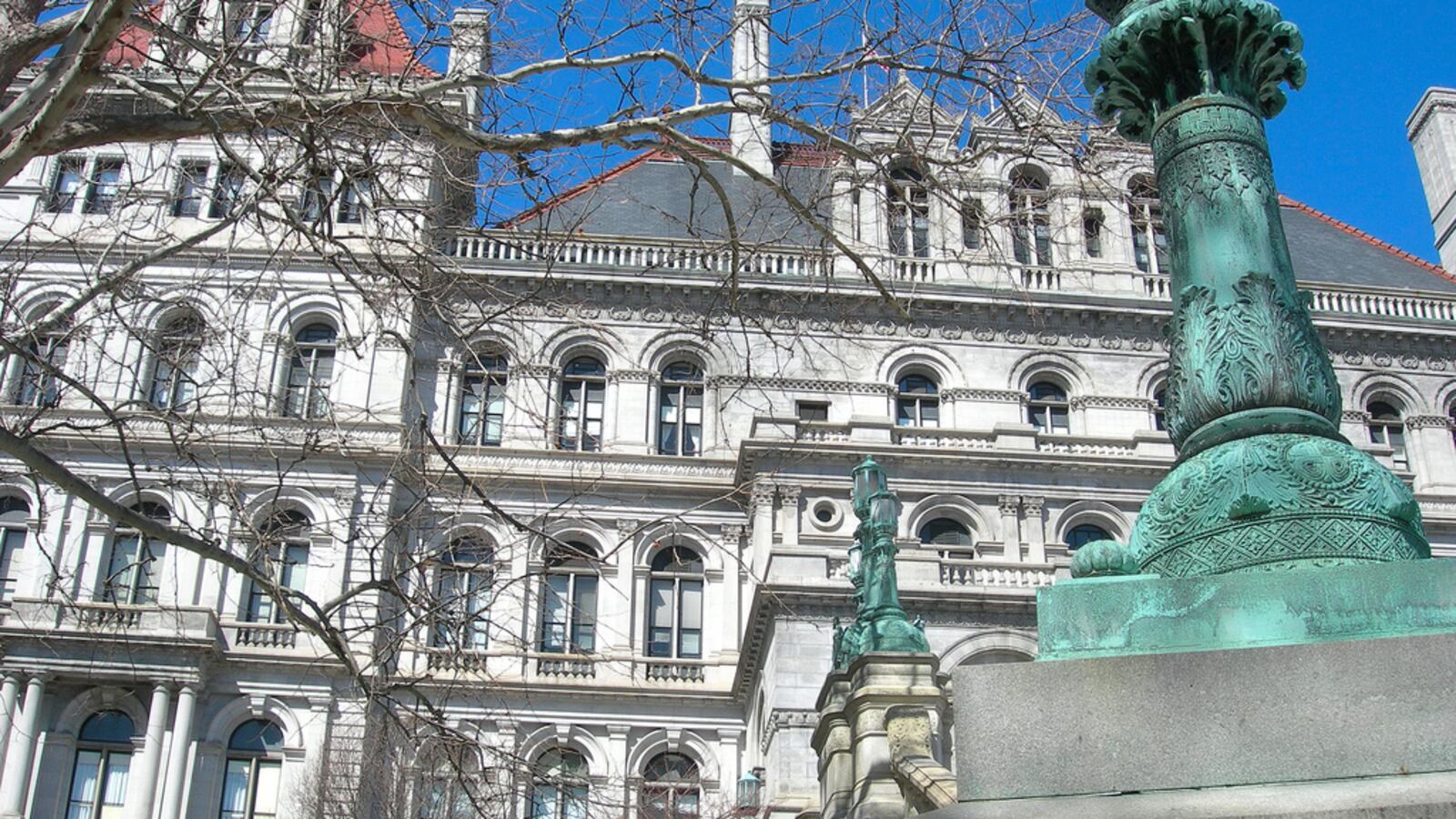The most powerful man in the New York State Senate released his own version of a bill that would overhaul teacher evaluations — but it has strings attached that will make it hard for some lawmakers to accept.
The bill still includes a lot of elements the teachers union has been pushing for, including eliminating a requirement that state test scores are used in teacher evaluations. But the legislation also increases the charter school cap — which limits the number of charter schools that can open in the state — by 100 schools and lessens oversight for private yeshivas.
“We have achieved a complete repeal of APPR, permanently decoupling student test scores from the evaluation of teachers, and rightly returning to a system of local control of education,” said Senate Majority Leader John Flanagan in a statement on Tuesday.
A bill delinking state scores from teacher evaluations, a top priority for the union this year, has already passed the Assembly with overwhelming support, and the governor has signaled he will not block the legislation. That leaves the Senate as the major obstacle to the bill’s passage.
But it’s unclear whether Assembly lawmakers are willing to sacrifice anything to ensure the legislation passes. In response to Flanagan’s bill, Assembly Speaker Carl Heastie has reportedly already said he does not want to attach extra provisions to the bill. Union officials have also made it clear they want to see the bill pass without any concessions. (In fact, they purchased balloons to send the message that they want it passed with “no strings attached.”)
“Instead of passing a clean bill that has 55 sponsors to reduce testing and fix the evaluation system, Sen. Flanagan is tying it to millions of dollars for the charter industry and his donors, and loopholes for private, religious schools,” said NYSUT President Andy Pallotta in a statement on Tuesday. “Our message has not changed. The Senate must pass S.8301 with no strings attached.”
The current teacher evaluation law dates back to 2015 when Gov. Andrew Cuomo backed a plan in which state test scores could count for as much as half of an educator’s evaluation. Though the law technically remains on the books, the state’s Board of Regents passed a moratorium on the use of grades 3-8 math and English test scores in teacher evaluations. Without further action, the moratorium will expire in 2019.
The Senate’s bill — unlike the Assembly’s proposal — would repeal the teacher evaluation law passed in 2015, dramatically expanding the power of local unions to help craft their own evaluation systems. Though teachers would still be rated on a scale from “highly effective” to “ineffective,” how teachers receive those ratings would be completely up to local communities to collectively bargain. That means local communities would have the power to figure out how much tests should count for evaluations — or whether they should count at all.
Putting so much power in the hands of local unions is opposed by some advocacy groups.
“We have grave concerns about the expansion of collective bargaining as it relates to employee evaluations,” said Julie Marlette, Director of Governmental Relations for the New York State School Boards Association.
Meanwhile, the provisions about charter and private schools are being forcefully fought by the unions. In addition to increasing the charter school cap statewide, the bill would allow more charter schools to open in New York City, where demand for the schools is greater.
Charter school advocates say lifting the charter school cap this year is critical for the sector’s growth.
“Limiting the number of potentially high performing public schools that can be created has never made sense,” said James Merriman, Chief Executive Officer of the New York City Charter School Center. “But now, with high demand from parents, a dwindling number of charters available, an increasing number of skilled educators willing to do the hard work of starting a new school, and an increasingly long record of charter schools improving achievement, lifting the cap doesn’t just make sense. It is an imperative.”
Additionally, the bill would reduce oversight of yeshivas, some of which have come under fire for failing to offer an adequate education. A powerful Brooklyn Senator that represents an Orthodox Jewish community has been pushing for the change. This bill would take power away from the State Education Commissioner to regulate the schools.
A spokesman for the Alliance for Yeshiva Education pushed back on the notion that this bill would reduce oversight at the private schools.
“Concerning oversight of Yeshiva education, this legislation would provide common sense protections for schools, and the state, by providing for a qualified and professional accreditation intermediary, as well as a clear process for remedying deficiencies,” said Michael Tobman, the alliance’s spokesman.
The union has organized a series of musical guests, including bagpipers, a gypsy jazz trio and a brass marching band to serenade Flanagan Wednesday so that he Senate will stop playing “such sour notes.”
However, another piece of the bill may be welcome news to the union. It repeals a requirement that teachers can only earn tenure after working four year and would return that time limit to three years.
This story has been updated with a statement from the New York City Charter School Center and from a spokesman for the Alliance for Yeshiva Education.

